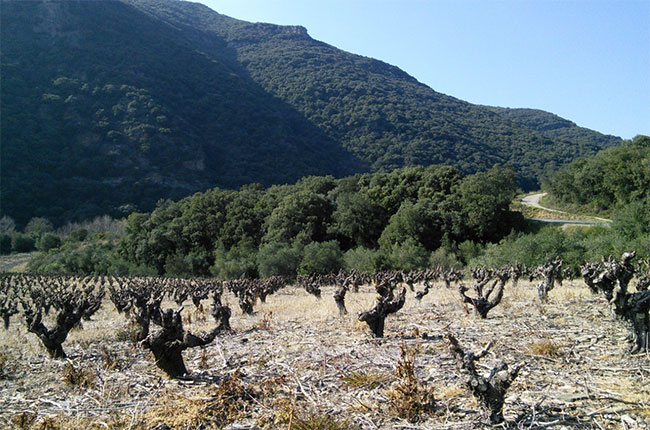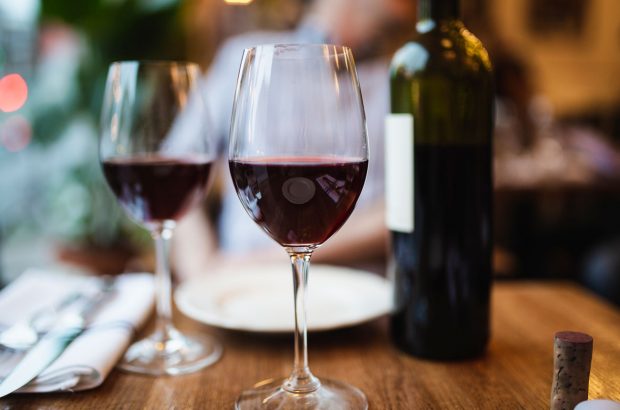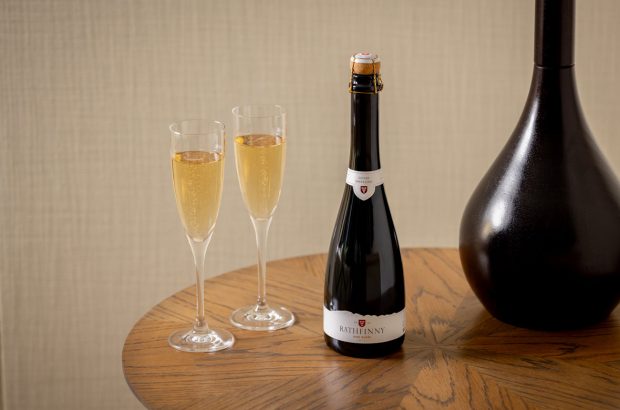After three decades of wine tasting, Andrew Jefford passes on some of what he’s learned.
Dear Taster,
So, you’re off; you’ve begun. You’ve discovered wine’s fascination. You’re thirsty for flavours, knowledge, understanding. I remember the early days well: the intensity of those primeval wine sensations; the excitement of new discoveries; the perplexity of expensive disappointments, and the sense of frustration afterwards. The more you read, the more inadequate you feel; progress, limited by funds, has to be slow.
Then comes the first large trade tasting or consumer wine show, and the senseless jangle of aromas and flavours as you roam around the hall. How should you make sense of so many competing sensations? How can you disentangle the threads? You try to taste as much as possible, yet the more the flavours pile on to each other, the more confusion reigns.
Relax; understanding will come. The speed depends on exposure; those working professionally in wine can move more quickly than those who can only taste with after-hours enthusiasm. But over the next few decades you’ll have ample opportunity to create your own palate, which is an interesting sort of ‘lifetime achievement’. You will, in other words, learn what sort of wines are typical of hundreds of different wine locations, and you’ll discover what you like, and what you don’t. Distinguishing the purchases you treasure, five or ten years down the line, from those you regret is the most telling revelation of all.

Making notes on the wines you taste can help – as this guest is doing at Decanter’s recent Premium Cava event. Credit: Cath Lowe / Decanter
Note, by the way, what a joy it is to possess a palate: to be able to smell and to taste the world. This is akin to the joy of having legs: to be able to walk and run through the world. In other words, it’s a gift the young take for granted – but both palate and legs need wise use and training to stay in shape, and to restrict the use of both prematurely, via excess or neglect, is a tragedy.
Why, though, are you tasting? We all taste for personal pleasure, of course, but if you’re tasting in any kind of professional capacity, you’ll always be tasting on behalf of others. Sommeliers taste to help diners get the most out of a meal-time experience. Wine buyers or sales staff taste to find wines which will bring their customers maximum pleasure at minimum price or — in the case of fine wines or classic wines — at a fair price. Wine critics taste to discern and articulate quality within a peer group. Wine writers or bloggers taste to convey the beauty and diversity of the wine world.

Trade professionals try wines at the Decanter Greece, Italy and Bulgaria tasting.
Whatever the role, in other words, professional tasters need to keep their palates as broad as possible, to be open to all forms of beauty. Any meeting with those you serve will quickly reveal just how widely palates differ.
The main axes of difference seem to me to be sensitivity to — and like or dislike of — sweetness, acidity, warmth and a palpable textural presence in wine. The responses provoked by certain sorts of aroma can also vary widely, as does judgment concerning the desirability and importance of fruit flavours as opposed to other sorts of flavour.
One of biggest challenges in wine tasting, in fact, is knowing where to draw the line between the need to be open to many forms of excellence and the duty to be critical of what you might perceive to be winemaking failings or errors. Your internal tasting hierarchy of values is of course ‘right’ – for you and your palate. But not for others with a different sort of palate.
Resolving this challenge matters greatly for critics and wine writers, one of whose roles is to help shape the wine world of the future. It matters less (except in terms of personal anguish) for traders and sommeliers, who will sometimes find themselves buying and selling wines they don’t like — because they know that such wines are exactly what some of their customers are looking for.

The last masterclass of the Decanter Fine Wine Encounter 2016 first day was a vertical tasting of Ch. Pontet-Canet. Credit: Cath Lowe
Related content:
At this point, respected young taster, I must introduce the notion of ‘drinkability’. When we taste on behalf of others, we taste on behalf of drinkers, not of tasters. Wine is for drinking. Swallowing a glass of wine provides refined sensual stimulus; eases cares and brings joy; and aids digestion and physical health. How well does it perform? We all know that some bottles or decanters empty more quickly than others at table. To me, the ability to detect drinkability (present or eventual) as you taste is almost the cardinal virtue of a taster. Not simply to compute qualities, in other words, but to go beyond that and to empathise on behalf of the drinker, and to find those qualities which will satisfy most profoundly in drinking. This is difficult.
Let me put it a different way. It’s easy to measure ‘noise’ when you taste, but it’s much harder to hear music. Noise does not constitute fine wine; music does. You’ll come across many noisy wines in your tasting lifetime, many bêtes de concours (prize-fighter wines) which are wonderful to taste but difficult to drink. You may discover this to your own cost, when you buy and cellar such wines.

Guests enjoying tasting the wines at Vintners’ Hall. Credit: Cath Lowe
This is why, in my opinion, a great taster needs to practice drinking as consciously (and as conscientiously) as he or she practices tasting. When a wine drinks well, analyse why. When you struggle to drink a wine, remember why, and use that in your tasting evaluations, even if it seems counterintuitive or unfashionable to do so.
Why does drinkability matter so much? It matters because it is a proof – perhaps the most important proof — of harmony, a cardinal aesthetic virtue.
Of course it’s also useful to taste structurally and analytically, to weigh up and measure the building blocks or lineaments of aroma and flavour, since then you will come to see wines as they actually are, not as they mythically are. (Many wines thrive on myths.) Don’t, though, take that structural vision of a wine and use it prescriptively. Great wine eludes formulation. Great wine can be high in acidity or low in acidity, high in tannin or low in tannin, high in alcohol or low in alcohol. (Alcohol is particularly tempting for the prescriptive, since it is printed on the label. Never look at that figure until you have tasted. Even then, only look if you feel that the harmony you hoped for might be missing.) The possibilities for harmony – trust me — are almost infinite.
Concentration of flavour, I now believe, is an over-rated virtue: it can very easily be artificially generated by acid-adjustment or by other forms of wine-making extremism. All of the greatest fine wines are great by virtue of disposition of flavour, not by virtue of accumulation of flavour.
The difference between a good simple wine and a fine wine does not lie in concentration but in what I would call grain: a kind of flavour-texture continuum (the wine-taster’s equivalent of space-time). Perfection of grain is what you need to look for at the highest levels, not concentration. Allied, of course, to compelling aromatic refinement, perceived not just by the nose but in the mouth, too.
Blind tasting is the cause of extraordinary stress levels to many young wine tasters, in part because success in the top tier of wine exams is predicated on it, and in part because it is a familiar dinner-party game or trick to play on those who take an interest in wine. But you know what? Unless you want to pass those exams, actually guessing what a wine is doesn’t matter at all. What matters is a clear assessment of what is in the glass. The true value of blind tasting is that it serves the wine without the myth. (And if you do want to pass the exams, the course work is there to help you acquire those necessary technical skills.)
Your life’s work is your palate – but even more importantly, it’s the architecture of your own mind. This, in the end, is more important than any measure of material success. You spend every minute of every day in your own mind, and if it is pleasant, well-ordered, diverse, curious, open and healthful place to pass that mass of time, then you’ll stand a good chance of overcoming life’s trials.
Tasting wine has a role to play in this. It teaches you to observe and listen to your senses, and to notice the fine detail of sensual presence and pleasure. Attention to detail is the basis of almost all skill and understanding, in every field, and our sensual being plays an important role in the constitution of the self.
As a drinker, you must learn the virtues of restraint – another useful lesson. Great drinkers don’t drink more, but better. A great taster is not measured by the number of wines that he or she tastes per year, but by the level of understanding with which he or she tastes those wines.
Tasting wine, as I hinted earlier, means tasting the world, in all its beauty and diversity. It opens us up to the world. There are wine-tasting bigots, but they are few in number and modest in attainment. Tasting the world in this way is a great challenge, and a great education; you will still be learning at the point at which you take your last sip of wine on this earth, long after other journeys of discovery have finished. So … keep it up. It’s a great way to be human.
With best wishes,
Andrew
More Andrew Jefford columns:

Jefford on Monday: The yachtsman’s white
Will Vermentino ever be considered a world great?

Jefford on Monday: The carbonic maceration virtuoso

My favourite Mas de Daumas Gassac wines – Andrew Jefford
Our guide to Languedoc's star estate...

Jefford on Monday: Châteauneuf in the cellar





